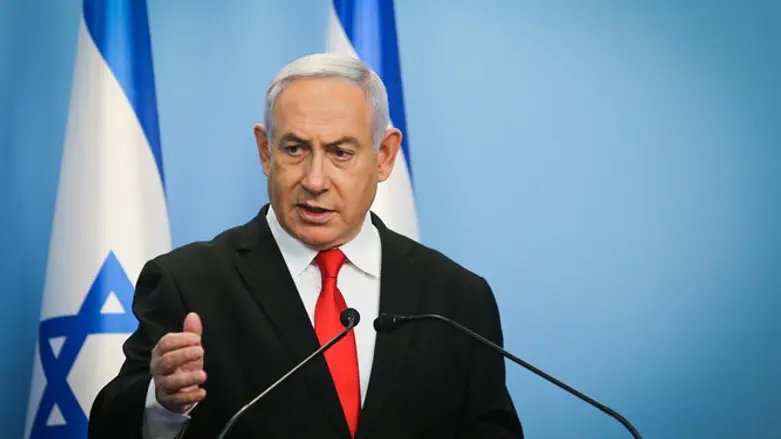
Israeli Prime Minister Binyamin Netanyahu pushed back on right-wing criticism Sunday that he has abandoned his plans to apply Israeli sovereignty over parts of Judea and Samaria in exchange for the Abraham Accords peace deal with the United Arab Emirates.
Speaking with Galei Tzahal Sunday afternoon, Netanyahu said that his sovereignty plan remained “on the agenda” and that its suspension is only temporary.
“Sovereignty hasn’t been taken off the agenda. After all, I was the one who had it included in the Trump peace plan, with American agreement. We will apply sovereignty with US approval.”
“It’s not that I had a choice of either applying sovereignty or peace with the United Arab Emirates right now. They [the US] requested a suspension in the application of sovereignty, but they haven’t taken it out of their peace plan.”
“From day one I said that we would only do this with US support, and they asked that we move forward with these peace deals. In my opinion, this is a historic change. We haven’t been asked to surrender or retreat or to make a deal with or negotiate with the Palestinians. Just as no one believed that I’d bring a peace deal, I’ll also bring sovereignty.”
“We’ve reached a peace agreement which destroys the idea that we need to uproot settlements or we won’t reach a formal deal with an Arab state.”
In a statement released by the Prime Minister’s Office Sunday afternoon, Netanyahu hailed the deal with the UAE as “historic”, saying it was the first time Israel had reached peace with an Arab state on the basis of “peace for peace” and “peace through strength”.
“Last Thursday, together with US President Donald Trump and Sheikh Mohammed bin Zayed, I declared the historic peace agreement between Israel and the United Arab Emirates. This is the first peace agreement between Israel and an Arab country in 26 years. It is different from its predecessors because it is based on two principles: ‘peace for peace’ and ‘peace through strength’. Under this doctrine, Israel is not required to withdraw from any territory and together the two countries openly reap the fruits of a full peace: Investments, trade, tourism, health, agriculture, environmental protection and in many other fields, including defense of course.”
“This peace was not achieved because Israel weakened itself by withdrawing to the 1967 lines. It was achieved because Israel strengthened itself by cultivating a free economy, and military and technological strength, and by combining these two strengths to achieve unprecedented international influence.”
“I remind you that in the current agreement, not only has Israel not withdrawn from so much as one square meter, rather the Trump plan includes, at my request, the application of Israeli sovereignty over extensive territories in Judea and Samaria.”
“It was I who insisted on including sovereignty in the plan, and this plan has not changed. President Trump is committed to it and I am committed to conducting negotiations on this basis. At the UN in 2013, I said that for years, many believed that Israeli-Palestinian peace would advance a broader reconciliation between Israel and the Arab world. I said that I was of the view that peace would be achieved in the opposite fashion: It was expanding reconciliation between Israel and the Arab world that would likely advance an Israeli-Palestinian peace. I added that in order to achieve this peace, we had to gaze not only at Jerusalem and Ramallah, but at Cairo, Amman, Abi Dhabi, Riyadh and other places as well.”